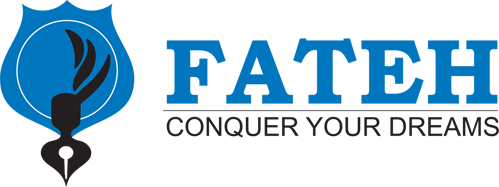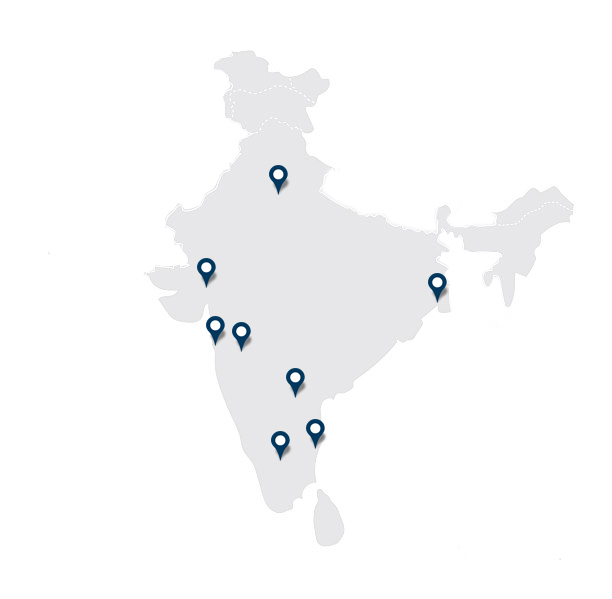Introduction
The September intake in Ireland stands as the primary and most sought-after admission period for international students, offering a diverse profusion of undergraduate and postgraduate programmes across numerous disciplines. This intake aligns with the global academic calendar, facilitating a smooth progression for students from various educational backgrounds. To ensure a successful application process, it is essential to be aware of specific university deadlines and requirements. So, what’s the wait for? Let’s dive into the Ireland September Intake, its process, popular courses, esteemed universities and deadlines.
Understanding the September Intake in Ireland 2025
The Ireland September intake is the primary admission cycle for most universities and marks the official start of the academic year. Courses typically commence in late September or early October, with the first semester running through to December, concluding with final examinations.
Being the main intake, this period offers a wider selection of accommodation options, including on-campus dormitories, student housing and private rentals. However, due to high demand, especially in university towns, it is advisable for students to secure their living arrangements as early as possible.
While most refer to this period as the September intake, some universities may begin classes in early October, leading to occasional references as the October intake. Furthermore, for international students, starting their studies in September offers a unique opportunity to immerse themselves in Ireland’s dynamic campus culture. With a host of freshers’ events, student clubs and societies actively recruiting new members, it is the perfect time to build friendships and engage in the vibrant student community from day one.
What are Some Advantages of the September Intake in Ireland for Indian Students?
- Wider Range of Course Options: As the primary intake for most universities, the Ireland September intake offers the broadest selection of courses. This gives students a better chance of securing admission into their preferred programmes and institutions.
- Seamless Academic Transition: The Ireland September intake aligns closely with the academic calendars of many countries, which makes it easier for students to transition smoothly from undergraduate to postgraduate studies without facing unnecessary delays or gaps.
- Favourable Weather for Adjustment: The September intake begins in autumn, offering mild and comfortable weather conditions to international students. This provides them with an ideal environment to settle in and adapt to Ireland’s climate gradually.
- Greater Access to Financial Aid: Since this is the main intake, most universities allocate a majority of their scholarships and financial aid packages for September admissions. Therefore, students applying during this period have better probabilities of securing funding and receiving timely support.
- Enhanced Job and Internship Opportunities: Ireland September intake aligns well with the recruitment cycles of prominent industry players, increasing the likelihood of employment after graduation for students. Additionally, many Irish universities integrate internship programmes into their courses and a large number of companies begin offering internship positions during this intake, making it easier for students to gain valuable work experience alongside their studies.
Is the September Intake in Ireland Right for You?
For Indian students, it is an excellent time to opt for the September intake due to the academic alignment with Indian institutions, job market advantages and ideal weather conditions for a fresh start. Understanding what Life in Ireland for Indian students entails will help you make the most of your study experience from day one.
- Programme selection: While many postgraduate programmes may be offered in January as well as September at some universities, not all courses are available in the January and September intakes. So, it is crucial to check your desired programme’s availability for the intake you are aiming for.
- Application process: It is always advisable to start your application process 8 to 9 months prior to the course start date as this gives you enough time to gather all the necessary documents such as academic transcripts, SOP, LOR, etc. and take relevant tests like IELTS, GRE, GMAT or LNAT.
- Visa processing: Usually, the turn- around time for the Irish student visa can be up to several weeks and sometimes longer if filing during peak time, around June/July. So, the earlier you apply, the more time you will have in hands for obtaining your visa and making necessary travel arrangements. Moreover, if you apply too late, you might have to apply under the priority or super priority category to get a decision sooner and avoid the risk of not getting your visa in time to start your programme.
- Accommodation and housing: The earlier you apply, the more likely you are to get good housing options, especially if you are planning to stay in on-campus accommodation.
- Scholarships: Scholarships are often limited in number, so, an early application increases your chances of being considered for these opportunities, as some scholarships come with early deadlines.
In essence, applying early gives you more time to manage all the necessary arrangements, including finances, air fares and accommodation.
Top Universities for September Intake in Ireland 2025
| University | QS Rankings 2026 | Cost of studying |
|---|---|---|
| Trinity College Dublin | 75th | 23,000-29,000 Euros |
| University College Dublin | 118th | 26,000-33,000 Euros |
| University College Cork | 246th | 20,000-27,000 Euros |
| University of Galway | 284th | 20,000-28,000 Euros |
| University of Limerick | 401st | 18,000-23,000 Euros |
| Dublin City University | 410th | 18,000-24,000 Euros |
| Maynooth University | 771-780th | 18,000-23,000 Euros |
| Technological University Dublin | 781-790th | 18,000-22,000 Euros |
Top Programmes for September Intake in Ireland 2025
Over the last few years, Irelands education industry has witnessed tremendous growth, especially in regard to international students. Its premier universities, the extraordinary range of popular courses in Ireland and long-standing industry relations is something that appeals to students the most. Not just that, but Ireland’s time-honoured reputation in fields like technology, business, healthcare, engineering and arts continues to draw students from all across the world who want to pursue their career in these burgeoning sectors. Let’s take a closer look at the most popular courses for the September intake in Ireland and the universities offering them:
| University | Programme |
|---|---|
| Trinity College Dublin | MSc Business Analytics MBA MSc Global Health |
| University College Dublin | MSc Computer Science Conversion MSc Finance MSc Digital Marketing |
| University of Galway | MSc Computer Science – AI MSc Computer Science – Data Analytics MA Global Media and Communication |
| University College Cork | MSc Accounting and Performance Analytics MSc Information Systems for Business Performance |
| Dublin City University | MSc International Accounting and Business MSc in Financial Mathematics |
When to apply for the September Intake in Ireland?
Below is an elaborate timeline for international students planning to commence their studies in Ireland September Intake:
- Research universities and courses: At least 2 months before the application start date and take up exams like GMAT, GRE, LNAT (if required by the desired university)
- Prepare for Admission: Gather all the required documents such as SOP, LOR, academic mark sheets and other mandatory documents.
- Apply to Universities: Irish universities primarily accept UG applications through CAO, whereas PG applications are made directly to the universities. The majority of universities open their applications from 1st October onwards of the previous year, as the September intake is the major intake.
- Receive Offers: This differs from university to university as some universities respond to applications on per first-come, first-served basis, whereas some have a stage-based admission system.
- Secure your place by paying the deposit (if any): This varies from university to university as some set certain deadlines to accept the offer.
- Accommodation hunting: Students should begin their accommodation search around April or May to avoid the last-minute hassle.
- Get Letter of Acceptance: Universities can generate this 6 months before the course start date.
- Gather required documents for visa filing: Around May or June, including the letter of acceptance, proof of financial support, proof of English language proficiency, passport and photograph.
- Submit visa application: Students should start this process 2-3 months before their intended date of travel.
- Prepare for travel after receiving a visa: Students should start preparing one month before arrival in Ireland.
- Arrive in Ireland: Students are suggested to arrive at least a week before the commencement of the course.
Common Mistakes to Avoid for September Intake in Ireland for Indian Students
Preparing for the Ireland September intake requires meticulous planning and attention to detail to ensure a smooth and successful experience for international students. Many applicants find it helpful to review a detailed Canada vs Ireland for Indian students comparison before making their final decision. By avoiding these common mistakes, students can avoid unnecessary stress, time and disappointment!
- Missing Key Deadlines: Universities in Ireland have strict deadlines for applications, scholarships and accommodation. Missing these can lead to missed opportunities, so it is important to ensure that you are organised and adhere to all deadlines.
- Postponing Housing Arrangements: Waiting until the last minute to find accommodation can leave you with limited options, often resulting in expensive or inconvenient living situations. So, it is integral to start your housing search early to secure the best option.
- Neglecting Post-Graduation Visa Requirements: Understanding Ireland’s post-study work visa regulations is essential for your long-term plans. Therefore, it is advisable to research job opportunities and visa policies early on to avoid complications later.
- Not Preparing for the Weather and Local Culture: Ireland’s weather in September can be unpredictable, with cool temperatures and rainfall. Be sure to pack accordingly and familiarise yourself with local culture to ease your transition.
- Delaying Scholarship Applications: Many scholarships for the September intake have early application deadlines in Ireland. Delaying your scholarship application could cause you to miss out on financial aid, so apply as early as possible to maximise your chances of securing funding.
FAQs
The application process for this intake typically begins a year before the start of the academic year, usually in September/October of the preceding year. However, it is suggested to check university websites for exact dates.
Yes, the Ireland September intake is also regarded as the fall intake as it aligns with the autumn semester in the academic calendar. For most universities, this is the primary intake, offering a myriad of courses, scholarships and research opportunities.
The deadline for applying to the September intake is usually between April to June, depending on the university and early course closure. However, it is important to cross-check on the specific university website that the student is aiming for.
The September intake is the primary intake in Ireland. Generally, all the major universities prefer this intake as it offers a wider course range, better internship prospects and more engaging campus events.
Yes, the September intake is the most preferred by students because it offers them a comprehensive selection of courses and scholarship opportunities. Additionally, it follows the international academic calendar, making it convenient for those progressing directly from school or completing their undergraduate studies.
The September intake provides students with an array of benefits, including wider course selection, seamless academic transition, favourable weather for adjustment, greater access to financial aid and enhanced job and internship opportunities.
For the September intake, it is advisable to take the IELTS exam by October or November of the preceding year. This even allows extra time for students who are considering a retake.
Some of the top universities in Ireland for the September intake include Trinity College Dublin, University College Dublin, Dublin City University and University College Cork.
For undergraduate programmes, 75-95% is required in high school and for postgraduate programmes, 55-75% is required in a UG degree. For some courses, a portfolio or certain professional experience may also be required.
After the September intake, there are a few universities that offer certain courses in the January intake; however, if you are aiming to target famous programmes at premier universities, it is advisable to apply for the September intake


